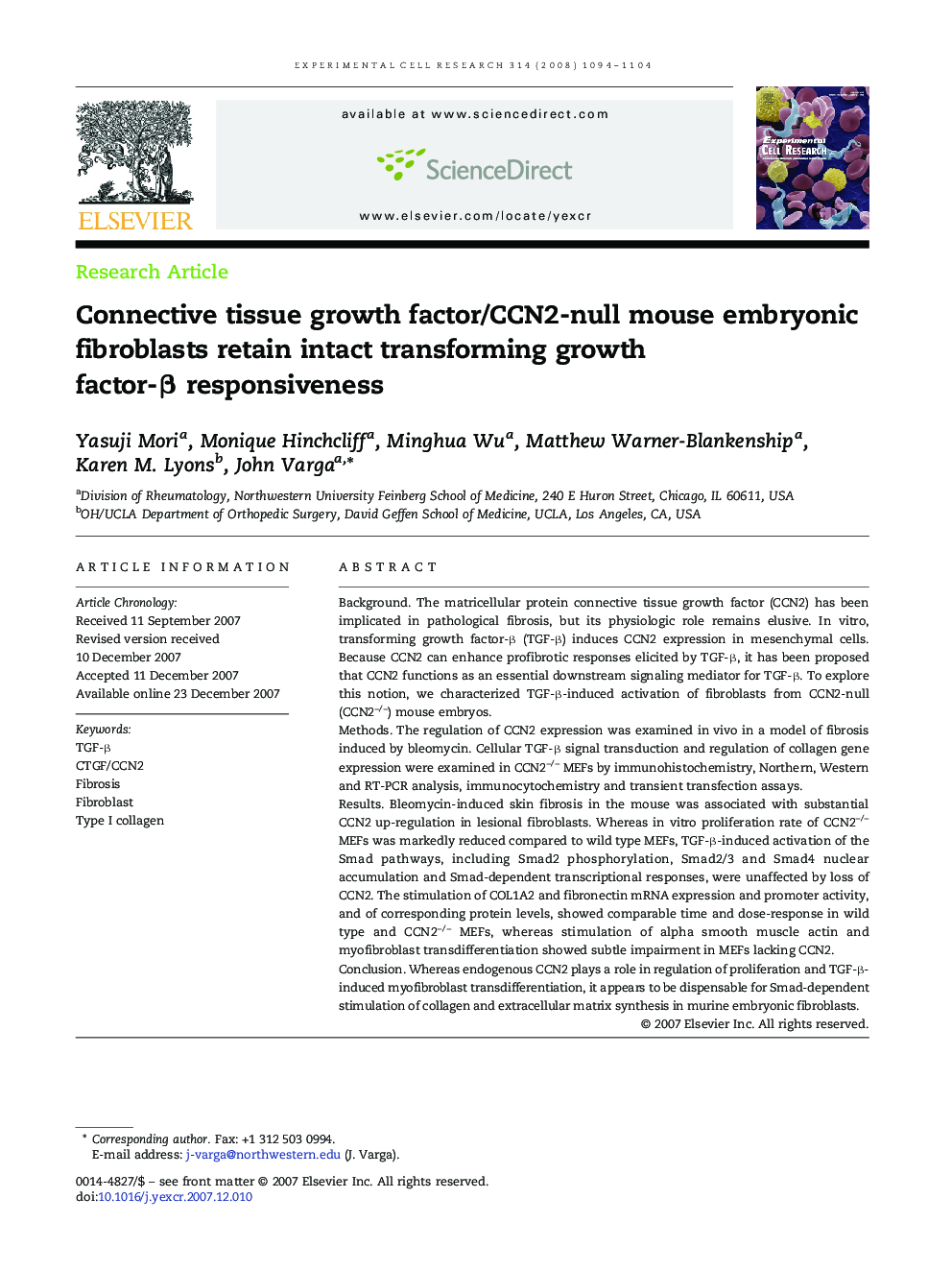| Article ID | Journal | Published Year | Pages | File Type |
|---|---|---|---|---|
| 2132172 | Experimental Cell Research | 2008 | 11 Pages |
BackgroundThe matricellular protein connective tissue growth factor (CCN2) has been implicated in pathological fibrosis, but its physiologic role remains elusive. In vitro, transforming growth factor-β (TGF-β) induces CCN2 expression in mesenchymal cells. Because CCN2 can enhance profibrotic responses elicited by TGF-β, it has been proposed that CCN2 functions as an essential downstream signaling mediator for TGF-β. To explore this notion, we characterized TGF-β-induced activation of fibroblasts from CCN2-null (CCN2−/−) mouse embryos.MethodsThe regulation of CCN2 expression was examined in vivo in a model of fibrosis induced by bleomycin. Cellular TGF-β signal transduction and regulation of collagen gene expression were examined in CCN2−/− MEFs by immunohistochemistry, Northern, Western and RT-PCR analysis, immunocytochemistry and transient transfection assays.ResultsBleomycin-induced skin fibrosis in the mouse was associated with substantial CCN2 up-regulation in lesional fibroblasts. Whereas in vitro proliferation rate of CCN2−/− MEFs was markedly reduced compared to wild type MEFs, TGF-β-induced activation of the Smad pathways, including Smad2 phosphorylation, Smad2/3 and Smad4 nuclear accumulation and Smad-dependent transcriptional responses, were unaffected by loss of CCN2. The stimulation of COL1A2 and fibronectin mRNA expression and promoter activity, and of corresponding protein levels, showed comparable time and dose-response in wild type and CCN2−/− MEFs, whereas stimulation of alpha smooth muscle actin and myofibroblast transdifferentiation showed subtle impairment in MEFs lacking CCN2.ConclusionWhereas endogenous CCN2 plays a role in regulation of proliferation and TGF-β-induced myofibroblast transdifferentiation, it appears to be dispensable for Smad-dependent stimulation of collagen and extracellular matrix synthesis in murine embryonic fibroblasts.
